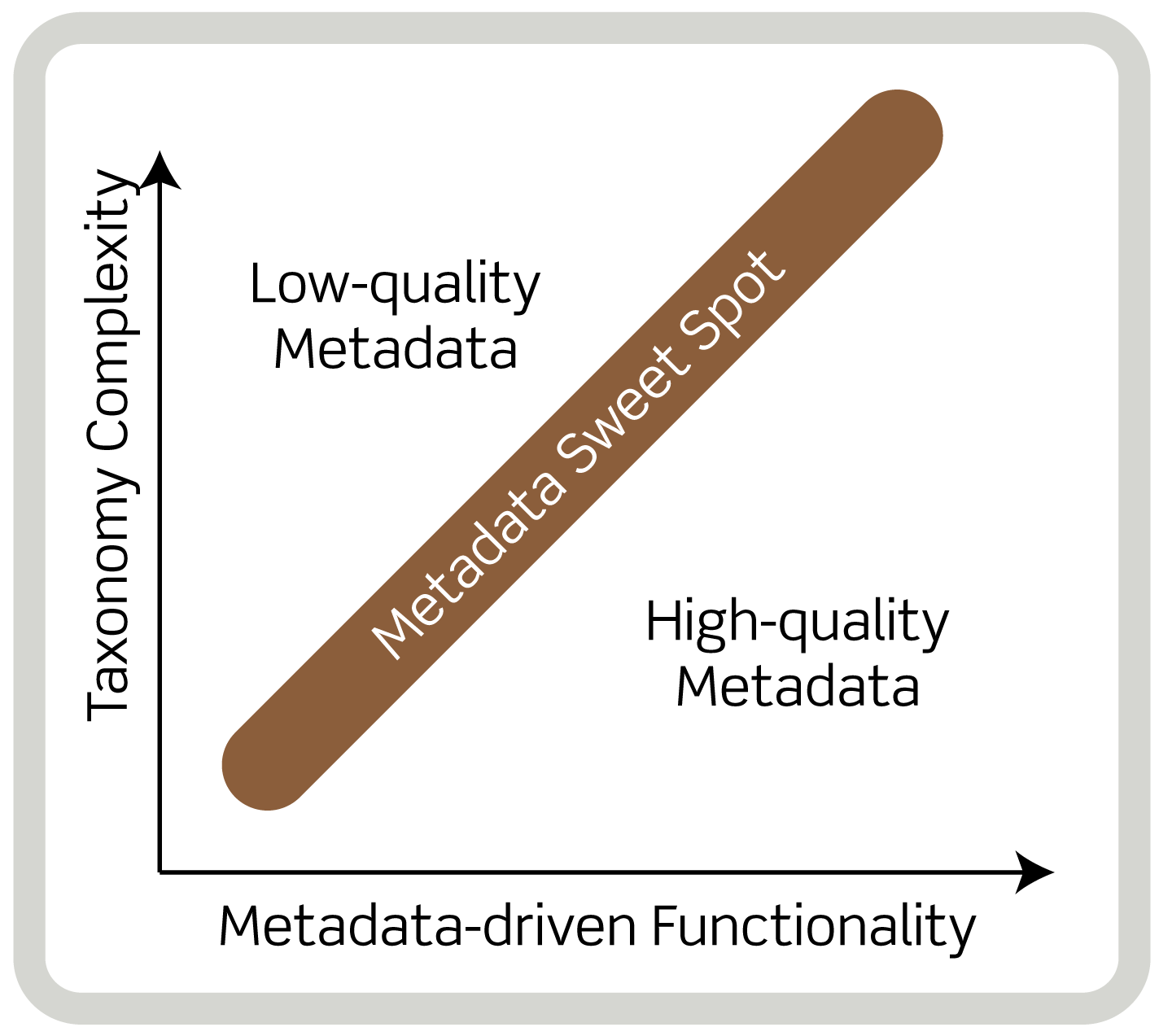Key Points
- Don't create a complex taxonomy that does not directly drive behavior for site visitors.
- Complex taxonomies can be very difficult to use, especially in maintaining high quality tagging.
The road to metadata quality hell is paved with good intentions. Spellbound by the possibilities a complex taxonomy (or just seeming like an interesting mental exercise in its own right), the team gets to work on a detailed taxonomy that could cover all the future needs of sophisticated searching/browsing. You have a problem when the complexity of your taxonomy outpaces functionality the site visitor sees. So if you have a five-level deep taxonomy but your site visitors only ever see the first level, then chances are that only the top level is accurately tagged. Since the content contributors won't see any difference/gain, then why would they spend the extra time required?

Match automated functionality to taxonomy complexity
The metadata sweet spot is where the taxonomy complexity matches the automated functionality on your site. So the complexity matches the functionality, and I am compelled to tag correctly. In addition to the functionality, the match must also be in the pain level of bad tagging. So, for example, I originally structured this site differently so old posts do not have very useful metadata. Since the pain level is relatively low, I haven't yet cleaned that old metadata (note also that this is a problem with free metadata tags without a large number of contributors). So if you bury some metadata-driven functionality that none of the content contributors care about, then the quality will also be low.
So what to do about this? Carefully consider any additional metadata complexity before adding it to your system. If at all possible, consider a way of increasing the visibility of the metadata through automated functionality on your site. The most direct way would be prominent functionality that the site visitor would see/use (and both the site visitor and content owners/site editors care about). Relying on administrative functionality (for example, ranking groups based on how much content is tagged to their detailed topic without showing this to site visitors) only would be more dangerous since it might encourage people to game the system.